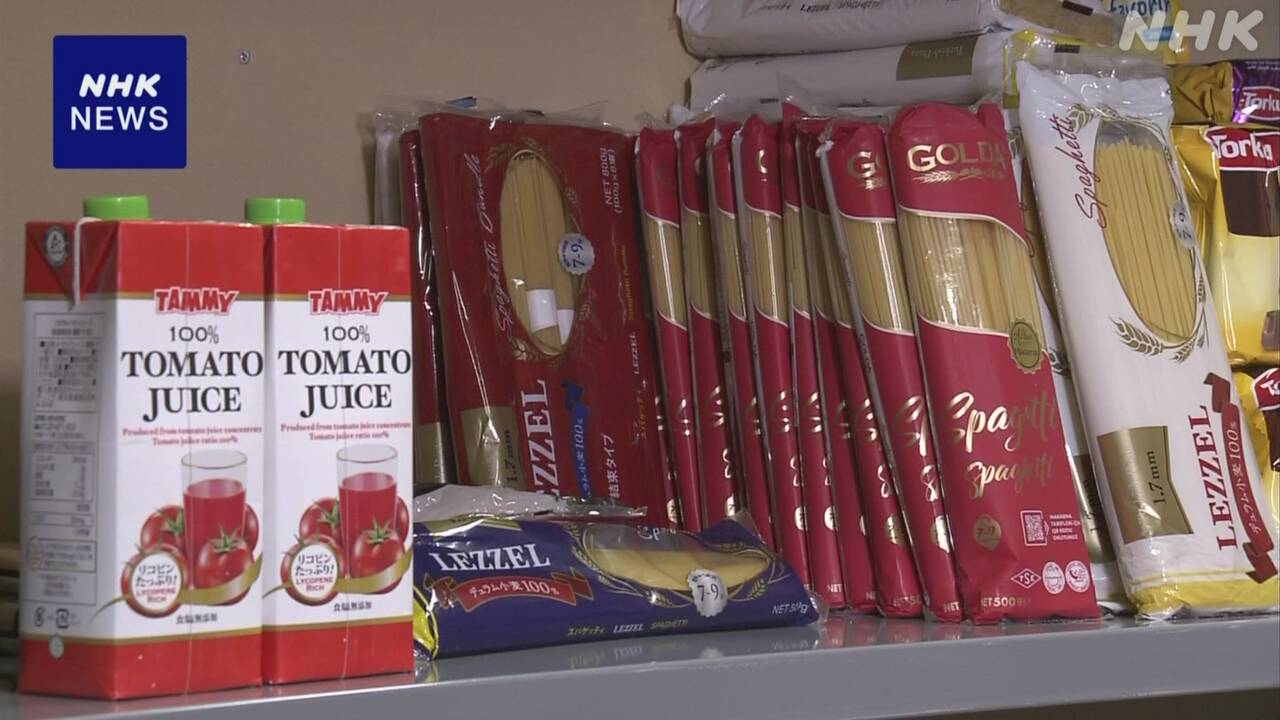As the Houthis have repeatedly attacked ships in the Red Sea area, there have been a number of cases in which maritime transport has been canceled or significantly diverted through routes such as the Suez Canal.
As a result, food products arriving in Japan are being affected by delays in their arrival and significant increases in transportation costs.
A specialized trading company in Tokyo's Nerima Ward with approximately 30 employees imports approximately 6,000 tons of ingredients from Turkey, Italy, and other countries annually, and wholesales them to retailers.
However, since November last year, the shipping companies contracted with the Houthis have stopped sailing through the Suez Canal and changed their route to around the Cape of Good Hope in Africa, which has had an impact.
According to the company, many products, including pasta and sweets from Turkey, and canned tomatoes from Italy, are arriving in Japan about a month behind schedule, and some products are in short supply.
In addition, due to significant route diversions, shipping fees from Europe and Turkey to Japan are said to be approximately 300,000 yen per container that can hold more than 20 tons, about twice as much as before. .
The company is also considering raising the wholesale price of its products in the future.
Hiroshi Tano, Sales Manager at Tooba Trading, says, ``The increase in sea transportation costs is a huge pain.We will share the situation with our business partners and consider what to do about prices.'' .
Wine imports: Delay in arrival from Europe; stores are out of stock
A wine importer headquartered in Shizuoka Prefecture sells wine imported from Europe, America, and other countries at 27 stores nationwide.
However, due to a series of attacks on ships around the Red Sea and delays in maritime transport, the arrival of some products imported from Europe, including those from France and Italy, has been delayed by about a month. .
As a result of this, our store in Ginza, Chuo Ward, has been out of Spanish wine for about a week.
This product is said to be one of the most popular items in the store, so a notice was displayed on the sales floor informing you that it was out of stock.
According to the company, the delay in arrival is expected to continue from March to April, so they are currently placing orders with a longer lead time than before, and are also placing orders for products from other regions such as Australia. This means that they are responding by actively selling the product.
Kiyohito Hosaka, group manager of Vinos Yamazaki's product department, said, ``We would like to deliver wine to our customers by having more inventory than ever before and being creative with ordering to ensure there are no shortages.''

